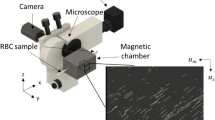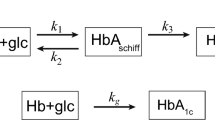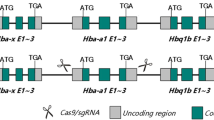Abstract
Summary: Magnesium-deficient fetuses exhibited malformations (44%), anemia, and edema. Maternal plasma magnesium levels at day 21 of pregnancy reflected the level of dietary magnesium (2.43 ± 0.09 mg Mg/100 ml, control; 0.74 ± 0.02 mg Mg/100 ml, deficient). Plasma magnesium levels of deficient fetuses showed similar decreases although all fetal magnesium values at term were higher than maternal values from the same group (3.29 ± 0.22 mg Mg/100 ml, control; 1.78 ± 0.07 mg Mg/100 ml, deficient). Magnesium deficiency did not appear to affect the maternal blood parameters. However, when fetal blood was examined, all of the parameters measured were altered in magnesium-deficient fetuses (Table 2). No abnormalities in hemoglobin bands or plasma proteins were seen between any groups by electrophoresis. Measurement of total protein showed no differences between maternal blood protein contents, but total plasma protein from magnesium-deficient fetuses was significantly lower than controls (2.00 ± 0.14 versus 2.62 ± 0.13 g/100 ml), thus establishing a factor in fetal edema production.
Morphologic data showed that in magnesium-deficient fetuses, fetal erythropoiesis was significantly greater in liver, adrenal glands, and spleen than in controls and that maturation was normoblastic. Stained and unstained peripheral blood smears of magnesium-deficient fetuses showed an obvious macrocytosis and at least 50% of the red cells stained abnormally, exhibiting pale areas. Erythrocytic morphology seen in fetal magnesium deficiency is consistent with inadequate filling of the cell by hemoglobin as suggested by Cohlan el al. (5), a probable cause of membrane collapse. The inadequate filling of magnesium-deficient red blood cells (RBC) with hemoglobin might be explained by a reduction in hemoglobin synthesis which is consistent with the reduced mean corpuscular hemoglobin (MCH) and MCH concentration (MCHC) of the deficient fetal red cells. The role of magnesium in protein synthesis is also compatible with a reduction in hemoglobin synthesis, yet may not completely explain the abnormalities and resultant shortened lifespan of the red cells.
Speculation: The present studies show the effects of magnesium deficiency during pregnancy in the rat to be severe, producing congenital malformations and fetal anemia. Very little is understood about magnesium deficiency in humans, although it is generally agreed that there is depression in plasma magnesium levels toward the end of pregnancy and a possible relationship between magnesium and pregnancy toxemia. The question of whether or not magnesium deficiency is a contributing factor to fetal anemia in humans remains. Magnesium deficiency in rats, however, provides an experimental model to study fetal anemia and its subsequent effects during the perinatal period.
Similar content being viewed by others
Log in or create a free account to read this content
Gain free access to this article, as well as selected content from this journal and more on nature.com
or
Author information
Authors and Affiliations
Rights and permissions
About this article
Cite this article
Cosens, G., Diamond, I., Theriault, L. et al. Magnesium Deficiency Anemia in the Rat Fetus. Pediatr Res 11, 758–764 (1977). https://doi.org/10.1203/00006450-197706000-00013
Issue date:
DOI: https://doi.org/10.1203/00006450-197706000-00013
Keywords
This article is cited by
-
The effect of variable magnesium intake on potential factors influencing endurance capacity
Biological Trace Element Research (1988)



